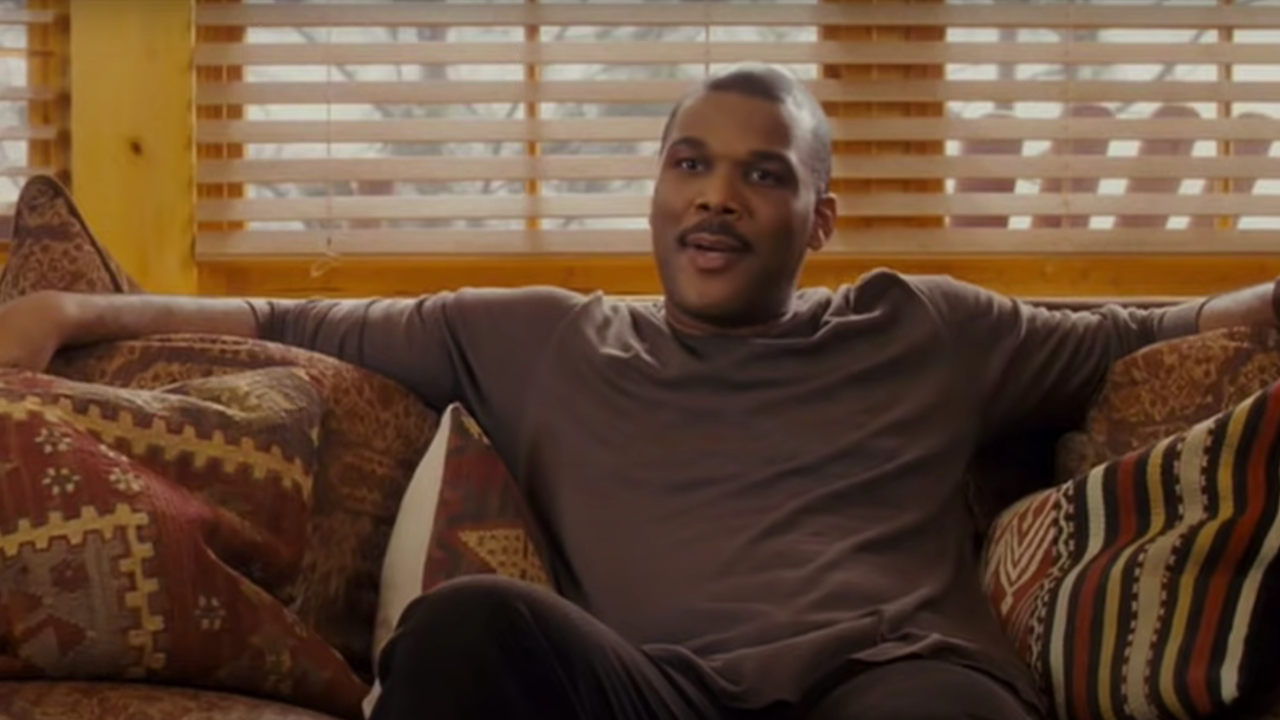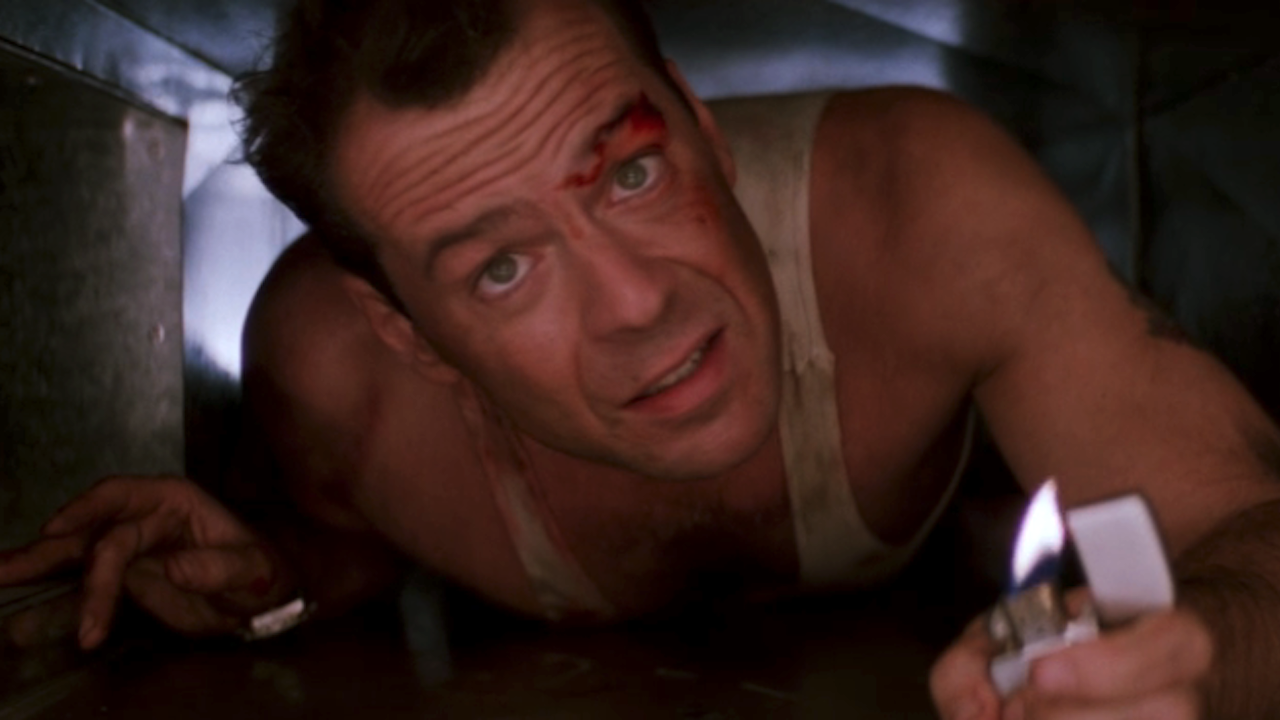Editorial: Racism, Hollywood, And Tyler Perry

Writer, director, and producer Tyler Perry has seen enough adversity in his life. We’re certainly not here to give him more. And yet, every time Perry receives the slightest inkling of a negative piece of criticism, his fans come of the woodwork to play the race card. Apparently people don’t like his movies because we, “can’t stand to see a successful black man” – a shameful conclusion to reach. The truth is I’m glad Tyler Perry is successful. I just wish he were more consistent in his storytelling.
Most people know Perry had a successful run in theater before moving to the big screen. What most people don’t know is the life that came before that. It took an abusive childhood and several months of living in his car as an adult to mold Perry into the storyteller he’s become. And no, that’s not a racial slur. That’s fact. Perry suffered through hard-knocks and homelessness before finding catharsis in writing – something he learned from The Oprah Winfrey Show. The writer started with letters, built those letters into a journal, which eventually grew into plays, and now movies. Because he credits her with inspiring a lot of his life’s transformation, it should come as no surprise that Perry has a script set aside to one day make with Oprah herself.
Success wasn’t instant for Tyler Perry though. In fact, in many ways he still hasn’t fully achieved it. He had to overcome his own anger and self-destructive attitude before his traveling theater company became successful, and Hollywood still hasn’t recognized the filmmaker’s potential. He’s not a quickly recognized face, and not because he frequently hides it behind a gray wig and dress in the character of Madea. Somehow tinsel-town has managed to ignore Perry’s successful theatrical plays, movie streaks, and even a TBS comedy series (House of Payne), and offers from major studios are still beyond the storyteller’s grasp. Not a big deal – Perry just put the finishing touches on his own production studio in Atlanta, and the lack of attention also affords the filmmaker more control over his own pictures.
But enough about Tyler Perry: the person. What about Tyler Perry: the filmmaker? Why doesn’t he get the credit he deserves? Is it because he’s an African American filmmaker? Hardly. One of the things I find the most appealing about Perry’s movies is the fact that he uses universal themes – themes that have been built from his own experience. Daddy’s Little Girls isn’t about a black man trying to make it for the sake of his daughters. It’s about a man who is willing to make sacrifices in order to properly raise his daughters. The color of his skin is irrelevant. Why Did I Get Married? is about four couples who are trying to survive marital issues ranging from infidelity to the loss of children. Again, skin color is irrelevant. These are ordeals families of any color, black, white, red, green, and blue, have had to endure and will continue to endure, and through Perry’s films they can get ideas of how to survive them and the knowledge that they are not alone.
Don’t get me wrong, though. I think it’s fantastic that Tyler Perry uses entirely African American casts to tell his stories. Not because I think these are solely African American concepts, but because we need more positive role models out there, and all too frequently African American actors are stuck playing those negative sterotypes. Tyler Perry brings some balance. We need more visible figures like Why Did I get Married’s socialites than promoters of gangsta lifestyles like 50 Cent. Play up the father who cares about his children rather than the guy more interested in getting into the girl’s pants and moving on, consequences be damned. Again, it’s not just a black thing. The impressionable youth of all races needs to see that it’s more important to be loyal to your spouse and responsible for your children. We need more Tyler Perry and less Flavor-Flav out there. Perry recently told EW that he dreams of owning and running a network, “where you can turn it on with your family all day long and get positive reinforcement.” I’ll take that over the crap VH1 airs 75% of the time these days.
When you get down to it, Perry’s actors and characters may be African American, but his stories are about family and spirituality – concepts that know no racial borders. We may criticize his cinematography or weak stories, but I’ll always respect his selection of themes as long as he stays true to them. Give me the weak but heartfelt Madea’s Family Reunion over the more popular but less substantial White Chicks any day. It’s movies like his that will be remembered in fifty years, simply because they are so universal. Even if the specific intent of Perry’s films isn’t to bridge any racial gaps (or gender gaps), the themes he touches on transcend.
I guess it’s because of that universality that I’m so disappointed when Perry’s faithful fans start throwing around race as a factor when reviews aren’t positive. Here you have a potentially brilliant filmmaker making movies that appeal to a wide spectrum, and any criticism of his filmmaking suddenly becomes a racial epithet. What good are movies that cross those borders if the people enjoying the films just draw those borders back again?
Your Daily Blend of Entertainment News
The truth is, the Perry faithful shouldn’t be so concerned with what critics say about the filmmaker’s movies. After all, Perry isn’t, and neither are the big studios. Lionsgate doesn’t offer advanced screenings for most Tyler Perry movies for critics. For a refreshing change, it’s not because they’re worried about what critics might say, but instead because they realize it doesn’t matter. Tyler Perry is criticproof – a rare position for a filmmaker, and even more rare for one that Hollywood hasn’t fully embraced. His movies appeal to a niche audience that critics won’t be able to put off – an audience I consider myself a part of, even if I often find myself appreciating his movies more for their intent than their execution.
